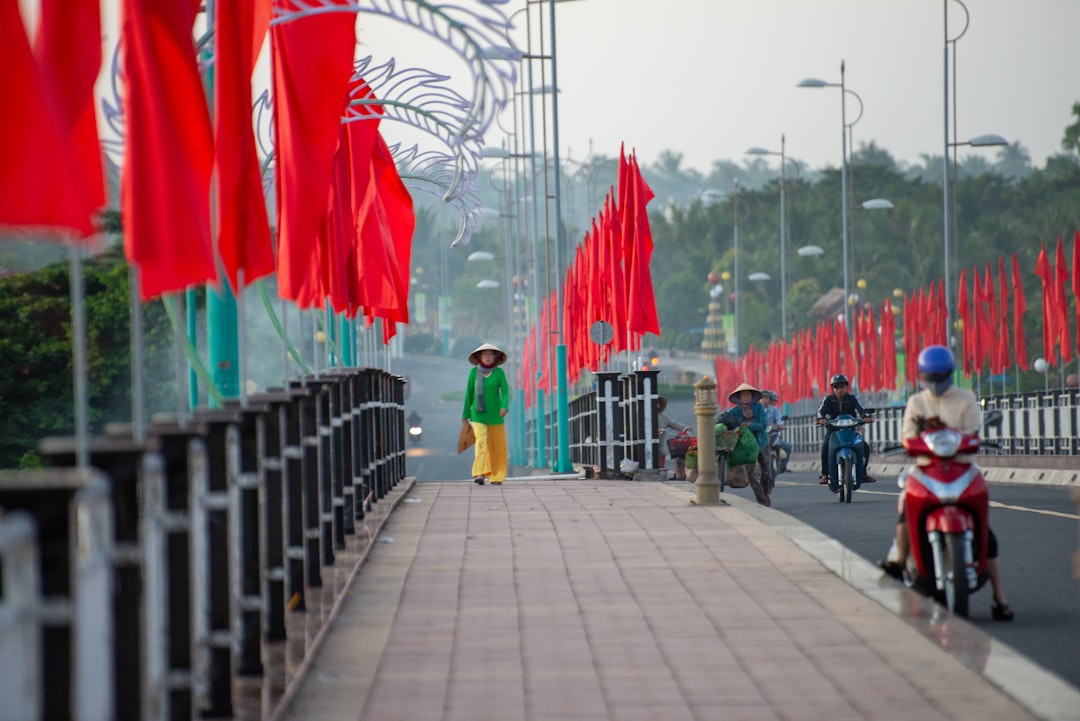The Iron Curtain Returns: Are Southeast Asia's Borders Closing on Progress?
In an era when globalization is touted as humanity’s greatest feat, the news that Thailand has abruptly shuttered its land crossings with Cambodia is more than a mere bureaucratic snafu—it’s a flashpoint in a brewing battle over borders, national identity, and collective progress. The physical barrier is easy enough to spot, but the real border confusion is a microcosm of deeper dilemmas facing the region—and the world.
Border Walls in the Age of Open Doors: Who Wins?
Thailand and Cambodia share more than 800 kilometers of border, pockmarked with official crossings, remote villages, ancient temples, and thriving black markets. For decades, these crossings were gateways not just for people, but also for ideas, labor, culture, and economic lifelines.
But when Thailand slams the gates shut, what’s really at stake? Consider the dueling philosophies:
| Perspective | Key Arguments | Potential Impact |
|---|---|---|
| National Security | Borders protect against trafficking, smuggling, disease, and terrorism | Increased order, but also fear; possible diplomatic tensions |
| Economic Pragmatism | Open crossing boosts trade, tourism, and labor mobility; closures hurt livelihoods | Short-term control, long-term poverty in border regions |
| Humanitarian Concern | Walls disrupt families, vulnerable migrants, and refugees | Social hardship, rights violations |
| Cultural Cohesion | Borders preserve identity, but also stifle exchange and hybridity | Risk of xenophobia vs. pride in heritage |
Is Thailand safeguarding its sovereignty, or masking deeper anxieties behind a curtain of barbed wire?
The Forgotten Faces Behind the Headlines
Border closures rarely impact politicians—they crush the powerless.
Local communities rely on cross-border trade for survival. A recent Oxfam report found that, in some Thai-Cambodian villages, up to 60% of households depend on informal daily crossings for goods and services. The closure turns bread winners into smugglers overnight.
“Every morning, the market used to buzz with Khmer and Thai vendors trading fish, spices, and stories. Now, silence and suspicion rule.” — Somchai, Border Trader
Meanwhile, human traffickers revel in tightened controls, exploiting desperation. Why walk through the checkpoint when the jungle offers a clandestine, if perilous, alternative?
The Ghosts of History: Have We Learned Nothing?
Southeast Asia is no stranger to artificial borders; the region’s contemporary map was drawn by colonial powers with little regard for the fabric of local societies. Every border crisis reawakens historical trauma—partition, displacement, lost heritage.
Ironically, the gates built in the name of safety often become monuments to fear and division.
Notable Historical Parallels
| Event | Outcome | Lesson Ignored? |
|---|---|---|
| Berlin Wall | Decades of division, eventual collapse | Walls delay, but don’t prevent movement |
| US-Mexico Border Tightening | Surging undocumented crossings, cartel violence | Hard borders fuel black markets |
| India-Bangladesh Fencing | Illegal migration persisted, families sundered | Human costs ignored for “security” |
The Technology Paradox: Surveillance vs. Solidarity
Today, border closures are not enforced by simple guards, but by a matrix of drones, biometric scanners, and AI surveillance networks. On one hand, technology promises efficiency; on the other, it exacerbates inequality, as only the wealthiest can slip through digital and physical cracks.
“Borders used to be places of exchange. Now, every crossing is a hostile interrogation.” — Cambodian Labor Rights Activist
In seeking security, are we trading away the possibility of trust?
Broader Trends: Fortress Nations in a Fractured World
Thailand’s move isn’t an anomaly—it’s a trend. Across the globe, populist leaders use border closures to rally support, scapegoat minorities, and deflect attention from deeper governance failures. The COVID-19 pandemic turbocharged border anxieties, but the genie of isolationism may never fully return to its bottle.
Will the 21st century be defined by open societies or fortress nations? The answer ripples far beyond a dusty checkpoint on the Thai-Cambodian border. When lines harden on the map, hearts often harden in tandem.
Conclusion: What Choice Will We Make?
History suggests that while border closures may offer a fleeting sense of control, they stymie innovation, prosperity, and human rights. Thailand may have shut its gates to Cambodia, but the real risk is that we are shutting our minds—and our futures.
This article was inspired by the headline: 'Border confusion as Thailand shuts land crossings with Cambodia'.

Comments
No comments yet. Be the first to comment!